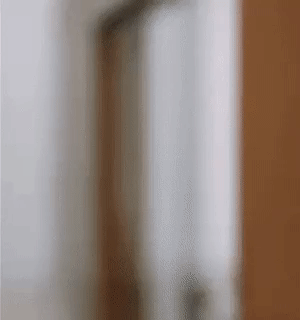On Sending the Elevator Back Down
I tweeted this out last week:


I’ve been thinking about it a lot since then. This was in response to a specific person who I’m not going to put on blast here, although I have tried to promote them where I can and give them props publicly in other places. They’re not someone I’ve ever met and not exactly in spaces I work in although I’ve seen them help my friends and it warms my heart.
I was introduced to the phrase “send the elevator back down” probably about ten years ago now. A friend and I were talking about a specific person of enormous power and status in the industry. They also came from a marginalized background. I’ve never seen this person speak on being a person of color in the industry. I’ve seen no efforts at their house to hire more widely. To see their experience reflected in their acquisitions or their publishing. I’m sure their experience shaped them in the ways it has shaped everyone who comes from a marginalized group. One of the ways it seems to have shaped them is to participate fully in the power structures of the privileged without a lot of reflection on what responsibilities they have to their communities or other marginalized communities.
My friend and I were literally in an elevator having this conversation and she said something to the effect of: “yeah, they got to the top and then just never sent the elevator back down for anyone else.”
I never want to be that person. I want to be the person who looks out for younger talent and tries to build a better safer industry for folks coming up through the system now.
It’s not easy, though. I can feel my attitudes calcifying — a rigid old man shell forming over my intentions, wrapped in a cantankerous frustration with the successive waves of new generations of young editors and agents. It’s hard seeing people leave the business, pursuing other opportunities, better work hours, fair pay for their labor. I get it, lord knows I’ve tried to leave publishing once or twice.
There’s that voice though that says: kids these days don’t understand what it takes. I worked hard coming up. I did a lot of grunt work. I have been unusually lucky in bosses, but even so there was so much extra labor I did in pursuit of the career I wanted. Hours and hours of extra reading, editing work, getting coffee, hunting down packages, booking personal travel, redecorating apartments even…
All of my friends that I came up with have horror stories. Bosses that screamed at them. Cruel, pointless insults. Staplers thrown. Work they were promised pay for that never materialized. Late nights and weekends while working three side gigs to make rent. I’ve been paid cash under the table because the partners thought it set a bad example to have something resembling a living wage salary. I’ve been paid in bottles of wine. A nice note. A Starbucks gift card. Those proposals and manuscripts sold in part because of the work we did on them. What percentage of fifteen percent of a hundred and fifty thousand dollars is a bottle of budget prosecco? I didn’t even drink wine.
This industry has gotten better over the years. There’s less abuse. Less overt racism. Less screaming and things thrown at assistants. More protections. Fewer unpaid internships. Less reliance on free labor. So it’s hard for me, sometimes, to sympathize with the ways in which it is still deeply, deeply flawed. The way my friends were treated when we were coming up should never have happened. And it’s hard not to mythologize it. To say: we’re tougher, smarter because of it. We know how to fight for what we deserve. We know how to grind to do the work no matter what.
That’s bullshit though. All we learned is that sometimes people take advantage of you. That sometimes decency isn’t the currency of success. That power and privilege leads to thoughtless exercise of both. That cycles of abuse lead to the kind of thinking I resist, that lead to us perpetuating the same mistakes through inaction if not active participation.
And so, I spend a lot of my time trying to find ways to send the elevator back down. To quietly offer mentorship and assistance to those interested in it. To try and spot someone in a bad situation and match them to an opportunity that will get them farther down the road. I get rebuffed as often as people accept advice or help. Which is fine. I’m not here to tell anyone how to live their lives or what choices to make. But this last week three different younger PoC have reached out to me for advice or a reference or an introduction and for a second, I take joy in knowing that I’m doing a little bit of the work that needs to be done.
We can do better as an industry towards the brilliant minds and talent who will be our future. We need to stop driving them out of our business because we forgot how hard it was to get started. It may be better but it’s still tough out there for PoC. It’s still hard for queer folk to be forced to justify their stories. For disabled folk to get the accommodations they should be afforded. For people who can’t weather the six months of slinging coffee while eating through your savings just to survive in NYC until you finally get that publishing gig you’re desperate for.
I’m trying to do my part. It’s so so little compared to what we need. And I wish I could look around and see more of us doing the work. But those of you who are, I see you and I applaud you, and I aspire to be you.
